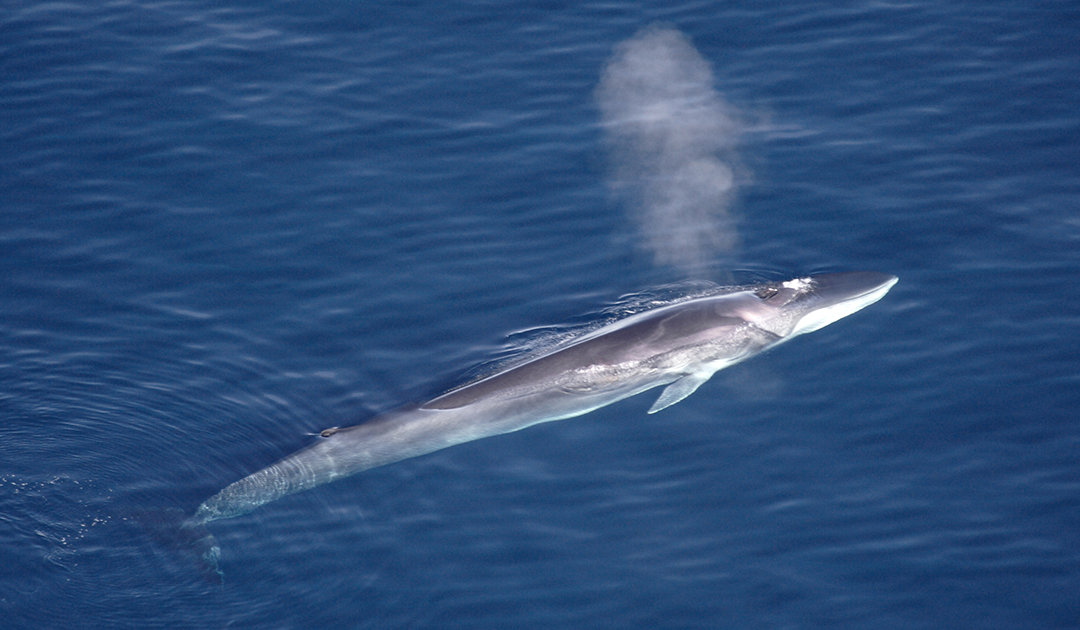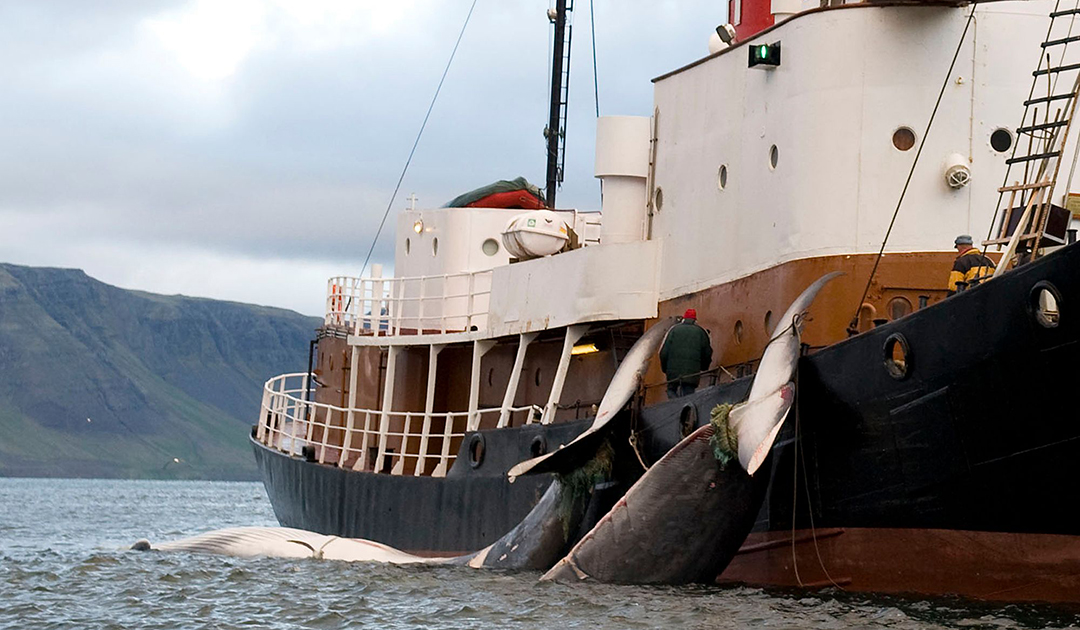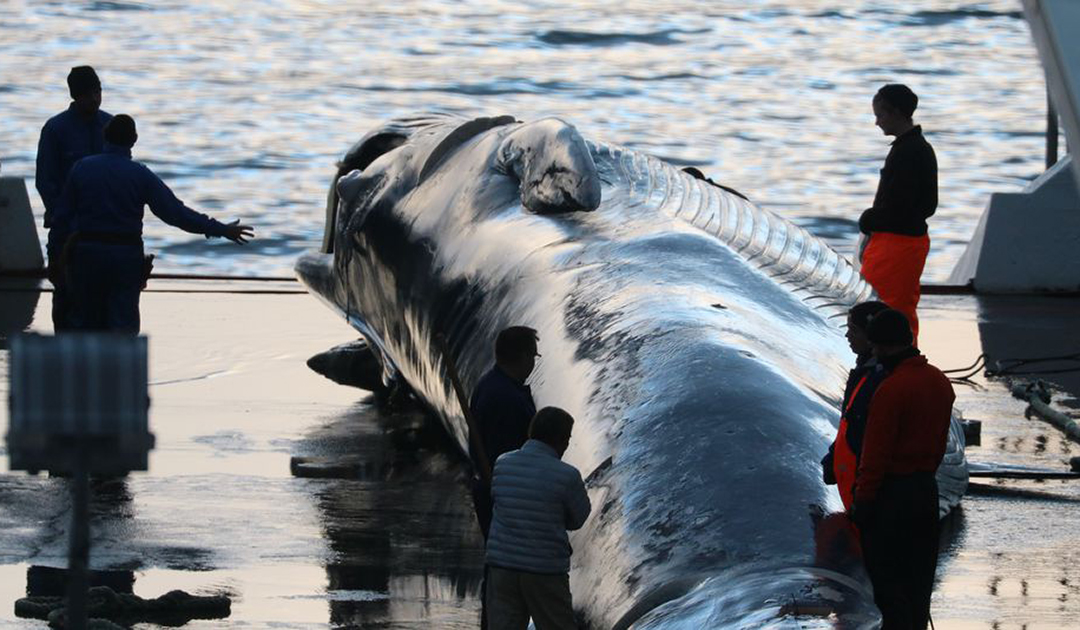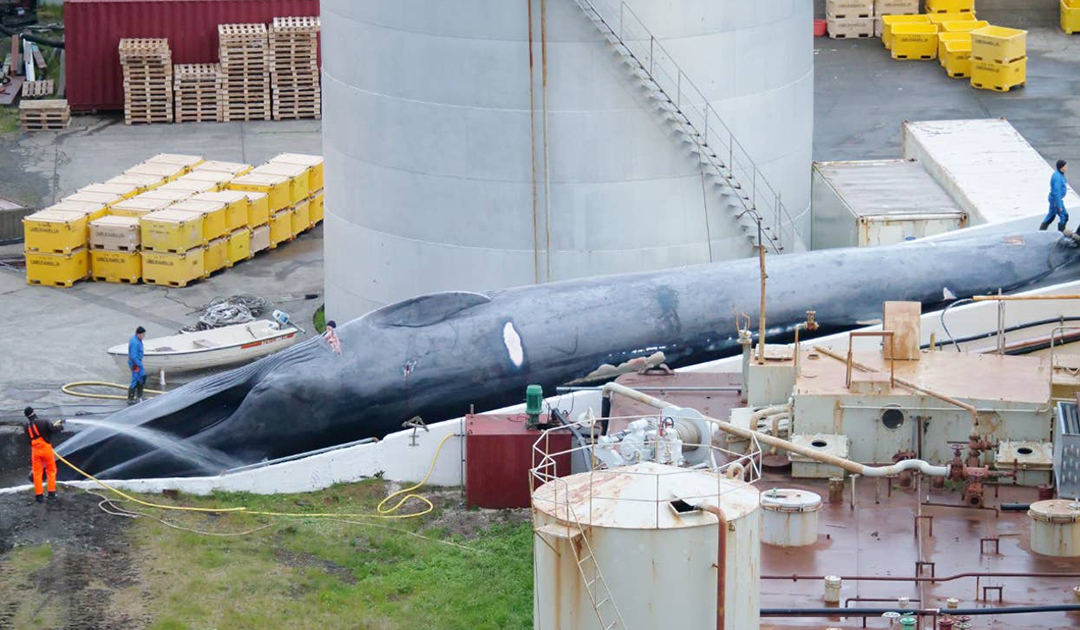
Good news from the island nation at the Arctic Circle: The Icelandic whaling company IP-Utgerd announced on April 24 that it will stop whaling completely, while the country’s largest whaling company, Hvalur, will no longer hunt whales for the second year in a row. Conservationists are pleased about this, but also know that the suspension of whaling in Iceland does not have to last.
IP-Utgerd, which mainly focused on minke whales (Balaenoptera acutorostrata), reported financial difficulties after the no-fishing zones off the Icelandic coast were extended. As a result, his boats were forced to sail further and further offshore. Hvalur, which is targeting endangered fin whales (Balaenoptera physalus),is shutting down its operations, in part because of fierce competition with Japan, according to Kristjon Loftsson, CEO of the company.
In the past, Hvalur sold most of its whale meat to Japan, but Loftsson says Hvalur is currently unable to compete with Japan’s own whale meat products because they are subsidised by the Japanese government. Moreover, Japan now imposes strict requirements on imported whale meat, which has made trade with Japan even more difficult, Loftsson said.
He also explains that the outbreak of COVID-19 would make it impossible for his company to hunt whales and process the meat, since the workers had to be in close proximity to each other and social distancing rules were difficult to follow.

For conservationists, this interruption in whaling, however long it may take, is welcome news. “This is indeed great news that for the second year in a row, endangered fin whales have received a grace period from Hvalur’s harpoons, the only whaling company on fin whales,” said Fabienne McLellan, co-director of international relations at OceanCare. “In the past, hunting fin whales in Iceland had been suspended, only to be resumed. While it looks promising that whaling in Iceland could be stopped forever, the temporary suspension of fin whale fishing must become permanent”.
Rob Read, director of Sea Shepherd UK, a group that documented Hvalur’s whaling operations in 2018, also welcomed the news. “I think the warning for the world’s most notorious whaler – Kristjan Loftsson – and his company Hvalur is now clear,” Read says. “Now is the time for Loftsson to lay down his harpoons and make Iceland an ethical whale-watching country, not a nation that kills whales.”

Hvalur has been whaling in Iceland since 1948 and did not stop when the International Whaling Commission imposed a worldwide moratorium on commercial whaling in 1986. From 1948 to 1989, the company caught an average of 220 fin whales per year, according to a report by the Animal Welfare Institute.
In 2018, Hvalur killed 146 fin whales, many of which were pregnant females. Two whales also turned out to be hybrids between fin whales and blue whales (Balaenoptera musculus), which led to considerable controversy. Read says he believes the “intense investigation” Hvalur received after killing the hybrids could be another reason the company won’t be whaling this year.
Hvalur exports most of its whale meat to Japan, with some of it sold within Iceland itself. However, whale meat is not very popular in the country, and a growing number of people do not support the industry, McLellan said. “Icelanders traditionally don’t eat fin whale meat,” she said. “A consumer survey carried out a few years ago showed that only 3 percent of Icelanders regularly eat minke whale meat, while 75 percent never eat whale meat.”

While conservationists say they hope Hvalur will lay down his harpoons forever, Arne Feuerhahn, founder of “Hard to Port”, a German organization that campaigns to end whaling in Iceland, says he is not convinced Hvalur will permanently end whaling. “We are celebrating the moment when there will be no whaling, but we are also aware of the possibility that whaling will resume next year,” Feuerhahn said. “We have to look to the past, so I know that Iceland sometimes takes a two-year break from fin whale catching.
“It’s a family business and he ([Kristján Loftsson]) wants to keep it alive, so that despite all the problems with the Japanese market and the problems in Iceland with the [COVID-19]guidelines, he could find a solution to it, and we could return to whaling in 2021,” Feuerhahn added.

Despite these reservations, Feuerhahn says he believes Loftsson can successfully convert Hvalur’s whaling facilities into an educational center. “He could make something really educational and sustainable out of it and tell visitors and the Icelandic community about the history of whaling and his family business without killing whales,” Feuerhahn said. “This has been done in Australia in the past. When Australia killed its last whale … The last whaling station in Albany, Australia, was converted into a museum. I think it could work very well in Iceland,too”.
Unlike Icelandic whalers, Norway has already started the whaling season on 1 April with a self-issued quota of 1278 animals, which is five times higher than that of Japan. The first minke whale has already been killed. Last year, Norwegian whalers with 429 minke whales remained well below the quota, but they killed many pregnant females.
Sources: Mongabay, OceanCare





